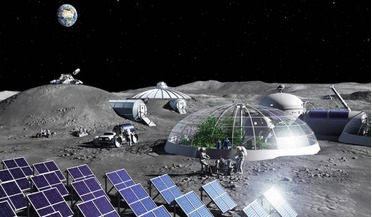 December 2021
All for one and one for all – recommendations for a sustainable future in lunar exploration
December 2021
All for one and one for all – recommendations for a sustainable future in lunar exploration
... of a large reservoir due to mistake or noncompliance could endanger the lives of any lunar residents and slow future human space exploration. China and Russia (ILRS) and NASA (Artemis) have separately evolving plans to establish a permanent...
 October 2024
Space industry trajectory under the spotlight of cultural anthropology
October 2024
Space industry trajectory under the spotlight of cultural anthropology
... the money to get there in the first place? Should humans explore space at all? Is it worth it to send humans to space? What cultural outcomes will result from continued human space exploration and the colonisation of other worlds? And lastly, what...
 October 2015
From post-humanity to fractals: is human space exploration doomed?
October 2015
From post-humanity to fractals: is human space exploration doomed?
...’ the Earth, but what we might call the “law of expansion” forces humanity to look towards space to further widen the scope of its successes. Yet humanity will not triumphantly go forth across the never-ending Universe, because its...
 September 2016
Transforming US space policy
September 2016
Transforming US space policy
...only agency charged with human space exploration. The American Space Renaissance Act begins the process of bringing NASA’s space exploration activities in line with a doctrine of pioneering space. The bill amends the Space Act of 1958 (directing NASA...
 February 2022
A manifesto for Europe in space
February 2022
A manifesto for Europe in space
... the accelerators are focused on societal needs, the inspirators are aimed at inspiring people about space. On one side there is human space exploration, which is very well understood as an inspiration for young people. The question is whether Europe...
 September 2023
The Institute of Biomedical Problems - Sixty years of contributing to the development of space biomedicine
September 2023
The Institute of Biomedical Problems - Sixty years of contributing to the development of space biomedicine
... organisations of various agencies and with broad international collaboration, the challenges necessary for human space exploration in medicine and related fields (biology, physiology, psychophysiology, habitability problems and creation of life...